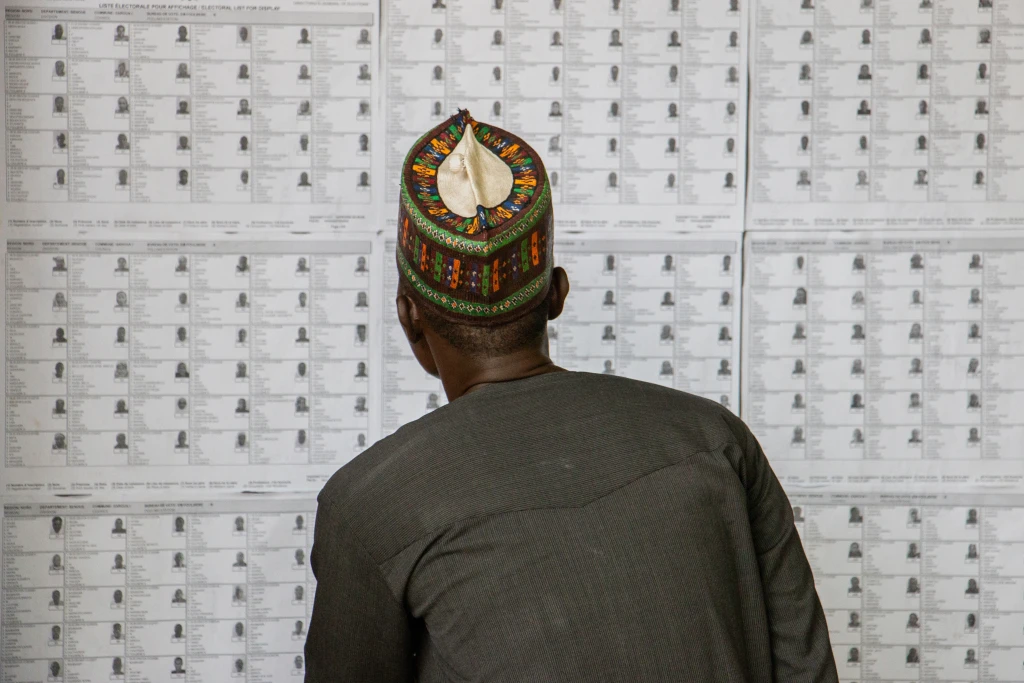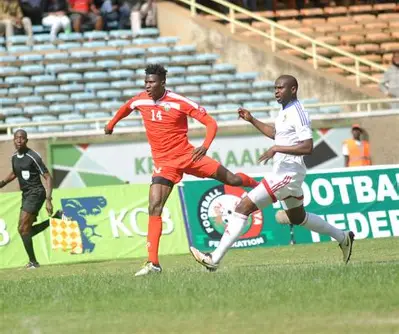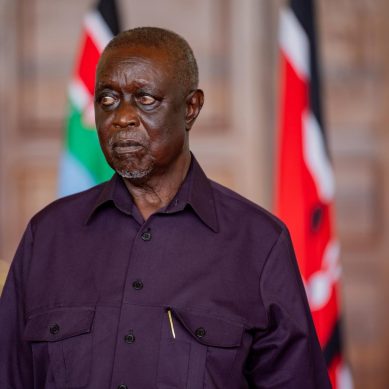
Naivasha Member of Parliament Jayne Njeri Kihara has strongly opposed plans to remove Chief Justice (CJ) and the President of the Supreme Court Martha Koome and the entire Supreme Court bench.
The MP said she reads a sinister motive in the petition filed before the Judicial Service Commission (JSC), coming midway before the 2027 elections. She said the move is designed to create anxiety in the judiciary and the political sphere.
Kihara warned against what she termed a politically motivated move to hamstring Justice Koome, adding that Mount Kenya region will steadfastly stand with her continue to defend her against the intended removal from office, just like the way a section of western Kenya leaders recently defended House Speaker Moses Wetang’ula against impeachment.
Koome hails from Meru County, which is a part of the larger Mount Kenya region.
It’s also worth noting that there was talk of impeachment of National Assembly Speaker Wetang’ula last week for what critics said was defiance of a court order that declared Azimio coalition the National Assembly majority party.
The MP was addressing the press in Mai Mahiu in Naivasha on Monday where she officially opened a National Government-Constituency Development Fund (NG-CDF) funded dormitory at Governor’s Secondary School to reduce dropout rates, especially among girls. The new dormitory cost Ksh7 million ($54,012) while Kenya Electricity Generation Company (KenGen) donated beds worth Ksh1 million ($7,716).
There have been calls to remove CJ Koome and some Supreme Court judges over alleged misconduct, biased rulings and political influence.
A section of the political elite, especially from Mount Kenya region are reading malice in the alleged interference with the independence of the Judiciary as the country heads to the 2027 General Election.
Notably, two petitions have been filed seeking the removal of Chief Justice Martha Koome and all Supreme Court judges.
The first petition by former Law Society of Kenya (LSK) President Nelson Havi was submitted to the Judicial Service Commission on January 10, 2025, calling for the removal of the entire seven-judge bench of the Supreme Court.
The grounds for this petition include allegations of gross misconduct and misbehaviour of the bench, particularly, the Supreme Court’s decision to ban Senior Counsel Ahmednassir Abdullahi and his law firm from appearing before the Supreme Court bench.
In the petition, Havi avers that the action by the bench to bar the Abdullahi firm indicates a severe lapse in judicial responsibility and competence.
The petition by Dari Limited; associated with former Cabinet Secretary Raphael Tuju, raises concerns over the Supreme Court’s handling of a commercial dispute between Dari Limited and the East African Development Bank (EADB).
The specifics of the allegations have not been made public, but the petition challenges the conduct and decisions of the Supreme Court judges involved in the case.
In response to these petitions, the JSC requested that the implicated judges submit their responses, which they did and have challenged the JSC’s jurisdiction over such matters, leading to legal proceedings in the petitions being halted.
Consequently, the High Court has issued temporary orders stopping the JSC from proceeding with these petitions pending further hearings.
The constitutional process for removal provides that the CJ or any judge could be removed through a petition to the Judicial Service Commission followed by a tribunal inquiry.
Justice Charles Kariuki in his ruling dated February 18, halted further proceedings against Chief Justice Martha Koome alongside six other Supreme Court judges pending the hearing and determination of the petitions.
“The grant of leave herein is to operate as a stay to stop the implementation of the decision by the respondent requiring the seven judges to submit responses in respect of any other petition whatsoever,” the High Court ruled.
Chief Justice Martha Koome, in her petition filed on Friday last week, had requested the court to grant orders prohibiting the Judicial Service Commission from hearing any petitions against Supreme Court judges. The judges argued that the JSC had no authority to review the decisions and any other judicial actions of the Apex Court.
The Judicial Service Commission is mandated to promote and facilitate the independence and accountability of the Judiciary and the efficient, effective, and transparent administration of justice under Article 172 of the Constitution of Kenya 2010.
The JSC receives complaints against judges, investigates and removes from office or otherwise disciplines registrars, magistrates, other judicial officers, and other staff of the Judiciary. These developments have necessitated significant debate within the country’s legal and political circles, highlighting tensions regarding judicial independence and accountability.
Criticism of government policies: Kihara also voiced concerns over the woes in the Social Health Insurance Fund (SHIF), citing poor decisions on the same and called for urgent action in order to save the suffering Kenyans.
Close to 1,000 private health facilities have vowed not to offer services through the scheme until the billions owed to them by the Government are paid in full. Kihara wants the government to prioritise payments of debts owed to these facilities for them to resume services to wananchi.
Earlier, the Ministry of Health raised concerns over inadequate contributions from Kenyans already registered under the SHA system which has affected the financial muscle to run the billion-dollar medical scheme that sought to bring equity to the country’s health sector.
The MP also opposed the recent move by the government to stop vetting residents in the boarder counties before issuing them with the national identity cards, terming it a security risk adding that it would see non-locals get national IDs which may dilute its value going forward.
The National Government Constituencies Development Fund from which kitty the construction of the dormitory at Governor’s Secondary School was funded, is established pursuant to the NG-CDF Act 2015 as amended in 2016 with the objective of addressing poverty at grassroots level and enhancing regional equity in development by dedicating a minimum of 2.5 per cent of all the ordinary revenue for disbursement under the CDF program.
The Constituency Development Fund was introduced in Kenya in 2003 with the passage of the CDF Act 2003 by the 9th Parliament.
Funding delays, lack of transparency and accountability, weak monitoring and evaluation, limited community involvement, and limited community knowledge of CDF, contractor incompetence are said to be some of the key challenges facing the fund.
- A Tell / KNA report / By Mabel Keya-Shikuku







